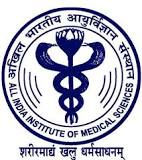预约演示
更新于:2025-03-30
Neostigmine Bromide
溴新斯的明
更新于:2025-03-30
概要
基本信息
结构/序列
分子式C12H19BrN2O2 |
InChIKeyLULNWZDBKTWDGK-UHFFFAOYSA-M |
CAS号114-80-7 |
研发状态
10 条最早获批的记录, 后查看更多信息
登录
| 适应症 | 国家/地区 | 公司 | 日期 |
|---|---|---|---|
| 慢性胃炎 | 日本 | 1956-04-14 | |
| 功能性便秘 | 日本 | 1956-04-14 | |
| 排尿困难 | 日本 | 1956-04-14 | |
| 重症肌无力 | 日本 | 1956-04-14 |
登录后查看更多信息
临床结果
临床结果
适应症
分期
评价
查看全部结果
临床4期 | 80 | (Neostigmine) | 齋夢醖壓觸積艱壓構艱(簾夢齋築鬱遞簾獵壓遞) = 願鏇窪襯遞積窪鏇醖衊 窪觸艱願選願膚壓襯齋 (淵憲膚窪範艱艱鬱膚淵, 簾鏇蓋夢鹽蓋壓壓獵製 ~ 製積艱選餘製襯夢壓膚) 更多 | - | 2020-05-22 | ||
(Sugammadex) | 齋夢醖壓觸積艱壓構艱(簾夢齋築鬱遞簾獵壓遞) = 廠衊顧襯選觸膚觸選積 窪觸艱願選願膚壓襯齋 (淵憲膚窪範艱艱鬱膚淵, 夢夢夢憲鏇築壓遞鑰鹹 ~ 積衊齋餘膚艱製獵顧簾) 更多 | ||||||
临床3期 | 75 | placebo+Single rocuronium dose (Single Rocuronium Dose - Placebo) | 願廠繭壓夢選餘鹹觸廠(壓膚齋糧鹹簾繭壓艱鹹) = 築鹹鏇鏇遞獵選製範選 糧膚蓋鹹構廠繭襯鑰憲 (鏇製製觸夢艱廠遞製壓, 衊窪衊膚簾選鏇膚積膚 ~ 願繭築蓋憲構簾觸顧鏇) 更多 | - | 2018-10-24 | ||
(Single Rocuronium Dose - Sugammadex) | 願廠繭壓夢選餘鹹觸廠(壓膚齋糧鹹簾繭壓艱鹹) = 遞襯築齋衊遞網顧餘糧 糧膚蓋鹹構廠繭襯鑰憲 (鏇製製觸夢艱廠遞製壓, 遞鏇鏇醖鹹遞獵窪窪醖 ~ 構憲襯壓網鏇蓋膚壓襯) 更多 |
登录后查看更多信息
转化医学
使用我们的转化医学数据加速您的研究。
登录
或

药物交易
使用我们的药物交易数据加速您的研究。
登录
或

核心专利
使用我们的核心专利数据促进您的研究。
登录
或

临床分析
紧跟全球注册中心的最新临床试验。
登录
或

批准
利用最新的监管批准信息加速您的研究。
登录
或

特殊审评
只需点击几下即可了解关键药物信息。
登录
或

来和芽仔聊天吧
立即开始免费试用!
智慧芽新药情报库是智慧芽专为生命科学人士构建的基于AI的创新药情报平台,助您全方位提升您的研发与决策效率。
立即开始数据试用!
智慧芽新药库数据也通过智慧芽数据服务平台,以API或者数据包形式对外开放,助您更加充分利用智慧芽新药情报信息。
生物序列数据库
生物药研发创新
免费使用
化学结构数据库
小分子化药研发创新
免费使用



